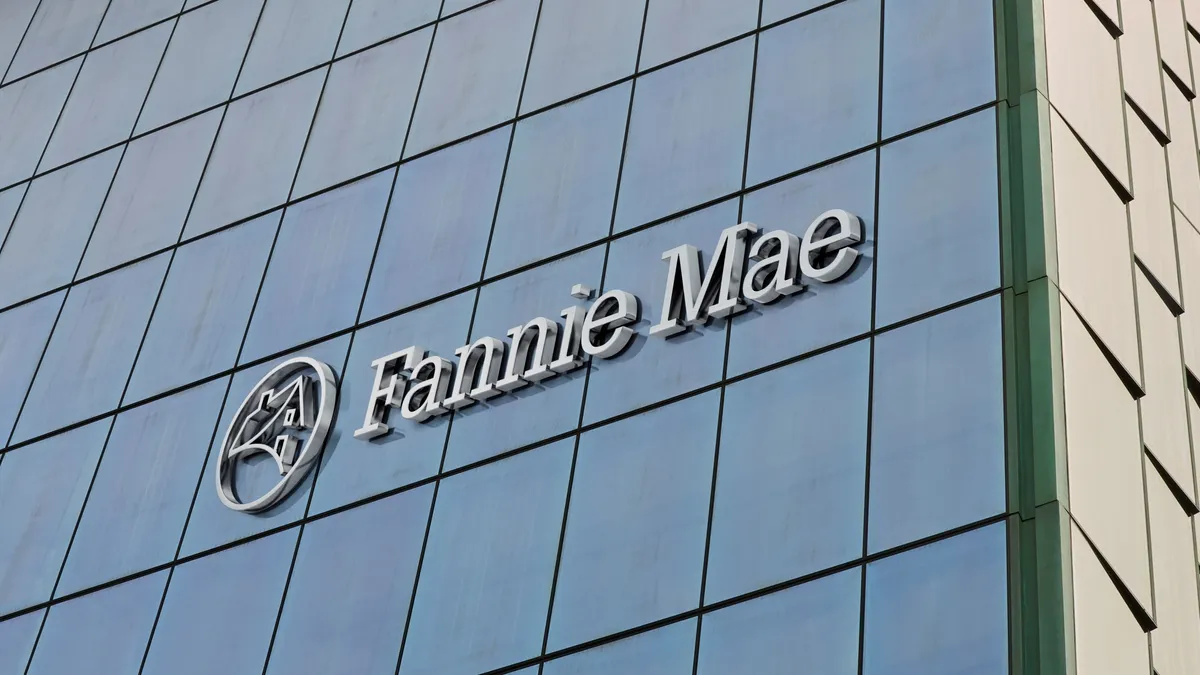Dive Brief:
- Fannie Mae reported that it had experienced financial losses due to mortgage fraud, and that it is currently investigating multifamily lending transactions where it suspects fraud may have occurred, in its recent third-quarter earnings filing with the Securities and Exchange Commission.
- “Certain gaps have been identified in our processes for managing multifamily loan origination fraud risk and for overseeing our multifamily seller/servicer counterparties,” Fannie Mae stated in the Oct. 31 report. “In the future, we may experience additional financial losses as a result of mortgage fraud.”
- To mitigate the impact of fraud on its business, the government-sponsored enterprise intends to improve its processes for managing multifamily loan origination fraud risk and oversight of multifamily seller and servicer counterparties, it said.
Dive Insight:
Fannie Mae’s underwriting process is delegated, according to the earnings filing, meaning that its lenders are the ones that present the characteristics of the mortgage loans it purchases and securitizes, and it does not usually independently verify this information.
“This exposes us to the risk that one or more of the parties involved in a transaction (such as the borrower, borrower’s attorney, sponsor, seller, broker, appraiser, property inspector, title agent, lender or servicer) will engage in fraud by misrepresenting facts about a mortgage loan,” the report said.
Until its process improvements are complete, Fannie Mae still anticipates it will experience losses from mortgage fraud. Even then, it cannot guarantee that its improvements will solve the issue entirely, according to the filing. The details of these process changes were not specified in the report.
In February, Fannie Mae notified its lenders that it would no longer accept loans from Riverside Abstract and Madison Title, two Lakewood, New Jersey-based title insurers, according to a report by Bisnow. The firms are allegedly linked to deals by New York City-based investor Boruch Drillman, who pleaded guilty in a mortgage fraud conspiracy in December.
In August, three fraudulent investors also pleaded guilty to conspiracy in a mortgage fraud scheme involving a Fannie Mae loan, according to the Department of Justice. The trio had purchased an apartment building for $70 million in 2019, but presented their lender and Fannie Mae with falsified documentation stating the property’s purchase price was just under $96 million. Fannie Mae and the lender had granted a $74 million loan based on the false information.
Fannie Mae’s fellow GSE, Freddie Mac, implemented new policies designed to detect and prevent underwriting mortgage fraud in April. Property inspections at properties with Freddie Mac mortgages now require a larger number of unit inspections and higher leased audit sample sizes. First-time borrowers and borrowers with limited multifamily experience will also require additional due diligence, and all borrowers will need additional liquidity and owned real estate verification.











